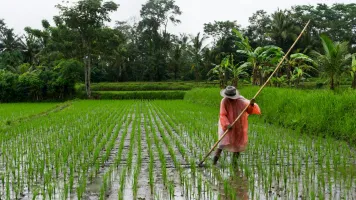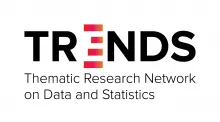In support of its objective to improve the quality, availability and accessibility of data for sustainable development, the Global Partnership for Sustainable Development Data has established a series of working groups. The Country Roadmaps Working Group specifically aims to assist countries to develop a comprehensive roadmap for improving their capacity for data collection, use, dissemination and decision-making. A key priority for the group is to develop a toolbox that enables countries to develop Data Roadmaps for Sustainable Development by considering both official monitoring and realtime, dynamic, disaggregated data. This module summarizes work completed by the United Nations Sustainable Development Solutions Network (SDSN) to support the development of such a toolbox. Specifically, it proposes three tools:
- an Essential Minimum Data Package that is needed to measure and implement the SDGs;
- a Common Template to identify data gaps at the country level; and,
- a series of questions that should help to fill this Common Template and build a country-led Data Roadmap for Sustainable Development.
TOOL 1: ESSENTIAL MINIMUM DATA PACKAGE
The first tool is a matrix that identifies and tabulates internationally accepted data sources relevant for the broad range of development that is targeted via the SDGs, in addition to making note of any international standards and best practices associated with each statistical package. The tool is informed by past recommendations (see "Key Resources" section below) as well as additional in-depth research into various data collection methods.
The second tool is a Common Template that allows multi-sector stakeholders at the country level to identify data gaps and construct data baselines specific to each country. It is built based on the Essential Minimum Data Package. In the template, each row is exactly the same as the corresponding row in the Essential Minimum Data Package, while the columns incorporate some of the key questions about each data source included in the questionnaire.
The third tool is a set of questions meant to help countries — national statistical offices (NSOs) and other government agencies, working in partnership with the broader data community, including civil society, academia/research institutions, media and private companies, with support from the Global Partnership for Sustainable Development Data — to assess their current data capacity and determine areas where investments need to be made for a more efficient monitoring system, based on identified global standards.
CONCLUDING REMARKS
Monitoring the 2030 Agenda would require substantive improvements in national statistical capacities. The necessity for stronger and more systematic collection of administrative data to improve government performance and encourage evidence based decision making is unquestionable. Consistent and timely collection of quality data on the varied dimensions of sustainable development requires a thorough evaluation of the existing data systems in a country, and knowledge of globally accepted data collection best practices so that data gaps can be bridged through smart investments.
In light of the 2030 Agenda for Sustainable Development, it is crucial to develop geospatial and environmental data systems and monitoring programs. Additionally, SDSN would like to point out new innovations in data systems and data sources that have emerged with advances in technology, such as satellite data, remote sensing, drones (UAVs), crowdsourcing, social media data, mobile phone data, web data and others that offer opportunities to collect data in more efficient, frequent and cost-effective ways, to be used as complements to official statistical data collection instruments and as substitutes in extreme data-constrained environments.
KEY RESOURCES
- Bubb, P.J., Butchart, S.H.M., Collen, B., Dublin, H., Kapos, V., Pollock, C., Stuart, S. N., Vié, J C. (2009). IUCN Red List Index Guidance for National and Regional Use. Gland, Switzerland: IUCN.
- Data Revolution Group (2014), A World That Counts: Mobilizing the Data Revolution for Sustainable Development.
- Food and Agriculture Organization of the United Nations (2015), Guidelines on International Classifications for Agricultural Statistics.
- Food and Agriculture Organization of the United Nations (2015), World Programme for the Census of Agriculture 2020.
- Global Strategy (2014), Assessing Country Capacity to Produce Agricultural and Rural Statistics.
- International Conference on Agricultural Statistics VI (2013) – Proceedings, Improving Statistics for Food Security, Sustainable Agriculture, and Rural Development. Linking Statistics with Decision Making.
- Paris21 (2013), Towards a Post 2015 Framework that Counts: Developing National Statistical Capacity.
- Paris21 Task Force on Improved Statistical Support for Monitoring Development Goals, Household Surveys and the Millennium Development Goals.
- Sustainable Development Solutions Network (2015), Data for Development: A Needs Assessment for SDG Monitoring and Statistical Capacity Development.
- Sustainable Development Solutions Network (2015), Indicators and a Monitoring Framework for the Sustainable Development Goals: Launching a Data Revolution.
- The World Bank (2000), Designing Household Survey Questionnaires for Developing Countries: Lessons from 15 Years of the Living Standards Measurement Study.
- United Nations Educational, Scientific and Cultural Organization (UNESCO) (2003), Information Tools for the Preparation and Monitoring of Education Plans.
- United Nations Office for Disaster Risk Reduction (2013), Global Assessment Report on Disaster Risk Reduction.
- United Nations Statistics Division – DESA (2005), Household Sample Surveys in Developing and Transition Countries.
- United Nations Statistics Division – DESA (2008), Principles and Recommendations for Population and Housing Censuses – Revision 2.
- United Nations Statistics Division – DESA (2010), Manual on Statistics of International Trade in Services 2010.
- United Nations Statistics DivisionDESA (2010), Economic Census: Challenges and Good Practices.
- USAID (2006), Guide to DHS Statistics: Demographic and Health Surveys Methodology.
- World Bank Group|World Health Organization (2014), Global Civil Registration and Vital Statistics: Scaling up Investment Plan 20152024.
- World Health Organization (2004), Developing Health Management Information Systems: A Practical Guide for Developing Countries


